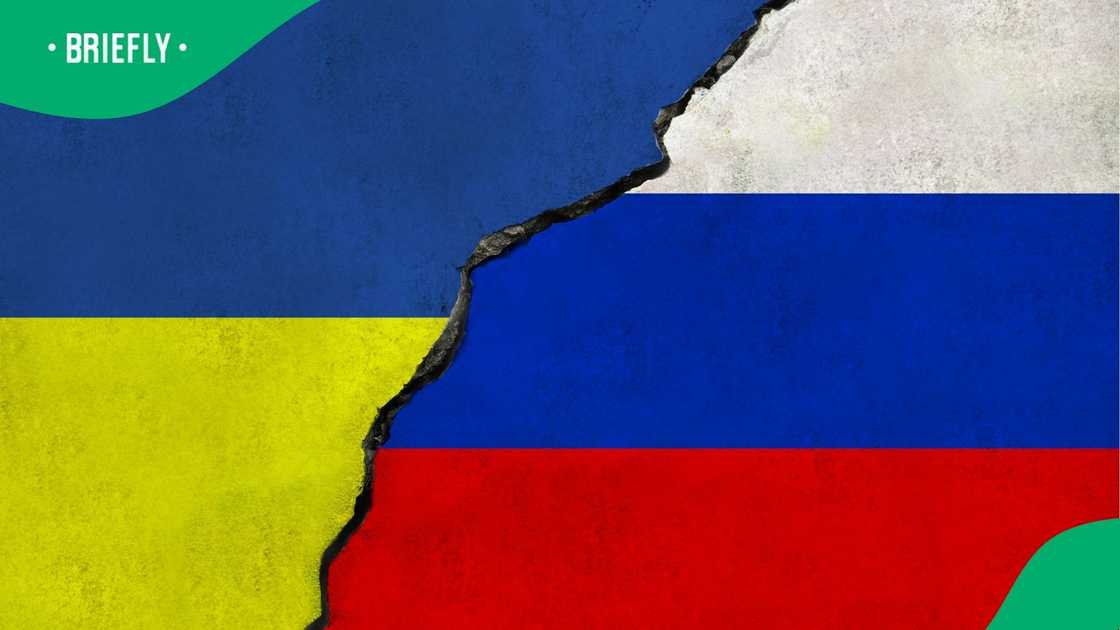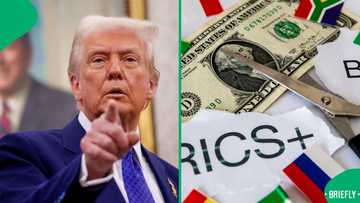Russia as a Neocolonial Power: Between Ukraine and Africa
Three years have passed since February 24, 2022, when Russia launched a full-scale military invasion of Ukraine. Marking the upcoming third anniversary of the invasion, Ambassador of Ukraine Mr Ivan Kholostenko presented his thoughts on the nature of neocolonialism and how the war in his country resembles the situation in Africa.
Don't miss out! Join Briefly News Sports channel on WhatsApp now!

Source: Getty Images
This year Ukraine marks the third anniversary of its resistance against aggression. For three years, the country has been defending not only its right to be independent but also the principles of international order based on sovereignty and the inviolability of borders.
However, the war against Ukraine is only one manifestation of Russia’s neo-imperial policy. Africa has become another arena where Moscow advances its interests using old colonial methods. The Kremlin exploits the continent’s natural resources, destabilizes regions through its mercenaries, and seeks to establish control over political elites. In both cases, the ultimate goal is the same: to create dependence, exploit countries for their benefit, and leave them economically and politically weakened.
To understand the true nature of Russia’s actions, it is essential to analyze its strategy through the lens of neocolonialism and compare the methods it employs in Ukraine and Africa.
Russia as a Neo-Empire: The Modern Colonial Policy
History has repeatedly shown that colonial powers always seek new ways to expand their influence. In the 18th and 19th centuries, empires openly seized new territories through military force. Modern neocolonialism, however, operates differently—through economic subjugation, political manipulation, and hybrid control mechanisms.
PAY ATTENTION: Briefly News is now on YouTube! Check out our interviews on Briefly TV Life now!
Russia attempts to portray itself as an opponent of Western colonialism, particularly in Africa. However, in reality, it behaves as a classic colonial empire. In Ukraine, it seeks to reassert control over former Soviet territory by destroying infrastructure, killing civilians, and looting resources. In Africa, the Kremlin operates more subtly, using instability as a tool to gain political influence and economic advantages.
The pattern is the same everywhere: Russia first creates chaos or exploits existing conflicts, then offers its “assistance” in the form of military support, political lobbying, or economic investment. In the end, the countries that fall victim to this strategy lose control over their future.

Read also
Taxes expected to increase after Enoch Godongwana’s 2025 budget speech, South Africans outraged
The “African Corps” – Russia’s New Colonial Tool
One of the most striking examples of Russian expansion in Africa is the activity of private military companies, particularly the Wagner Group, now rebranded as the “African Corps.” The newly-presented study “Russia in Africa” by Ukrainian Institute for the Future provides a comprehensive overview of how this organization operates in African countries, offering military "assistance" to governments facing internal conflicts.
However, the true role of these mercenaries is far from benevolent. They do not merely “stabilize” situations but actively create new centres of conflict. Russian mercenaries support specific political factions, eliminate competitors, intimidate local populations, and ultimately make governments even more dependent on Moscow. In return, the Kremlin gains access to key natural resources—gold, uranium, diamonds, and rare-earth metals.
This scheme mirrors the classical colonial model of the 19th century, when empires took control of African territories, promising “protection” to local rulers in exchange for their resources.
Resources as the Main Target: A New Colonizer?
Today, Russia is one of the largest exploiters of Africa’s resources. It extracts gold, uranium, diamonds, oil, and gas across the continent, doing so without transparent agreements or fair economic benefits for African nations.
The Kremlin employs the same approach in Ukraine. Russian occupying forces steal Ukrainian grain, abduct Ukrainian children, and attempt to erase the cultural identity of entire regions. These are all neocolonial practices aimed at destroying independence and subordinating people to Moscow’s rule.
Russia’s policies in Africa and Ukraine are two sides of the same coin. In both cases, the Kremlin does not create anything—it only destroys, leaving behind dependence, corruption, repression, and poverty.
Parallels Between the War in Ukraine and Russia’s Actions in Africa
A closer look at Russia’s actions in Ukraine and Africa reveals many similarities:
- Military Presence: In African countries, Russian fighters operate similarly to how they acted in Crimea and Donbas region in 2014. First, the Kremlin denies involvement, acting through "private corporations"; then, it "protects" local authorities; finally, it establishes control over resources.
- Economic Plunder: In Ukraine, Russia steals grain; in Africa, it loots gold and uranium. The goal in both cases is the same—enriching Russian elites at the expense of other nations.
- Propaganda and Manipulation: Moscow employs identical narratives in Africa and Ukraine, claiming to "protect" nations from "Western imperialism," even though it behaves like a typical colonial power.
A Call to Africa and the World
Ukraine and Africa share a common adversary—neocolonial Russia, which disguises its expansionist ambitions behind anti-Western rhetoric. African nations that once fought for independence from empires now face a new colonial threat—this time from Moscow.
We urge African nations to critically analyze the Kremlin’s rhetoric, which portrays Russia as a “friend of Africa” while it simultaneously exploits resources, supports authoritarian regimes, and spreads chaos.
Ukraine has resisted Russian aggression and continues to fight for freedom. Africa also has the strength to resist neo-colonial forces. Together, we can stop imperial ambitions.
Source: Briefly News




